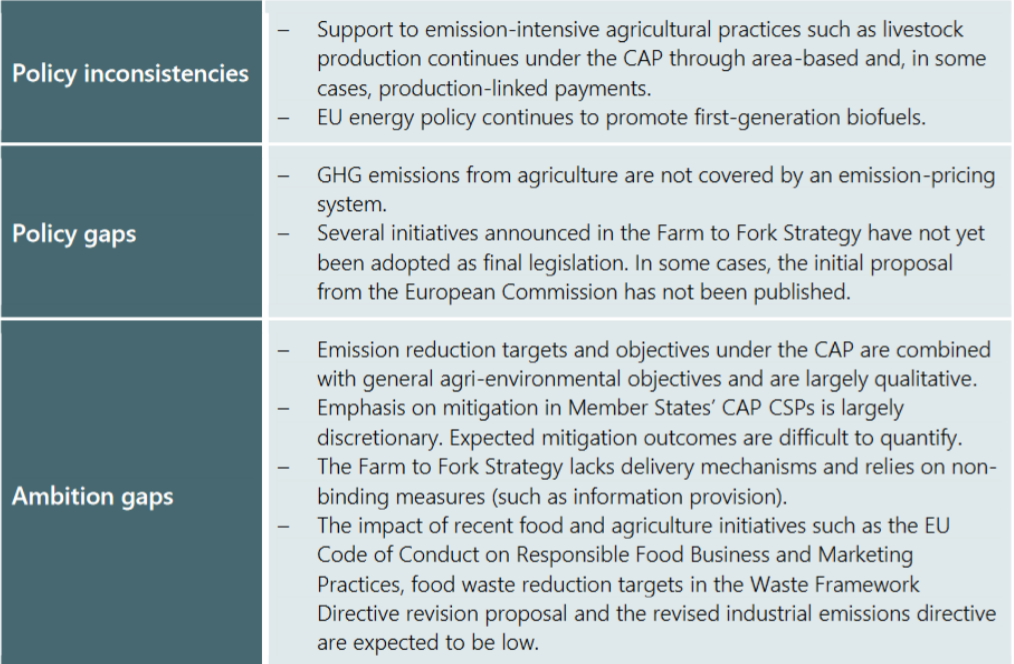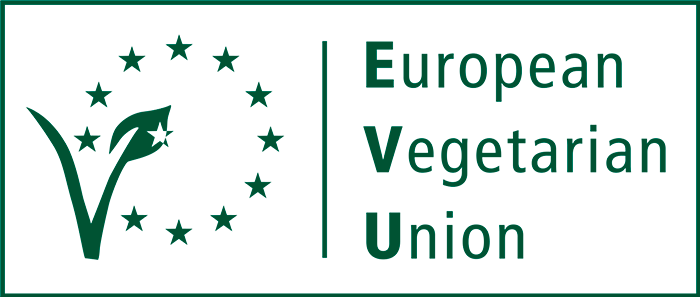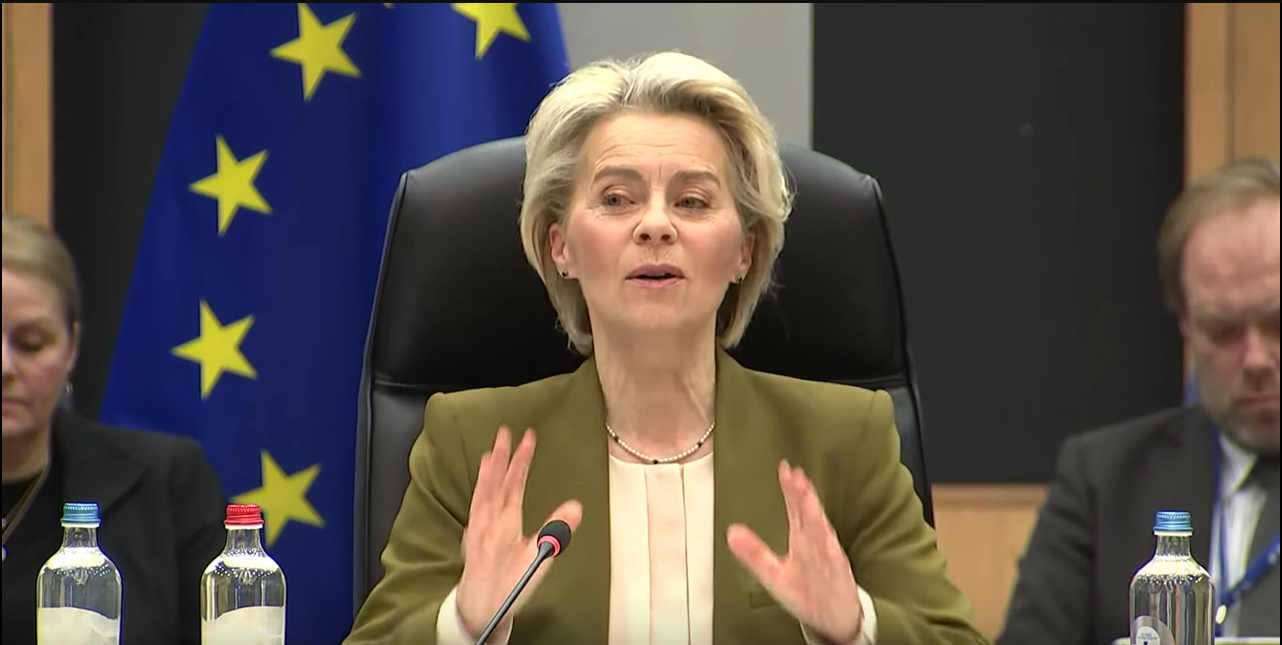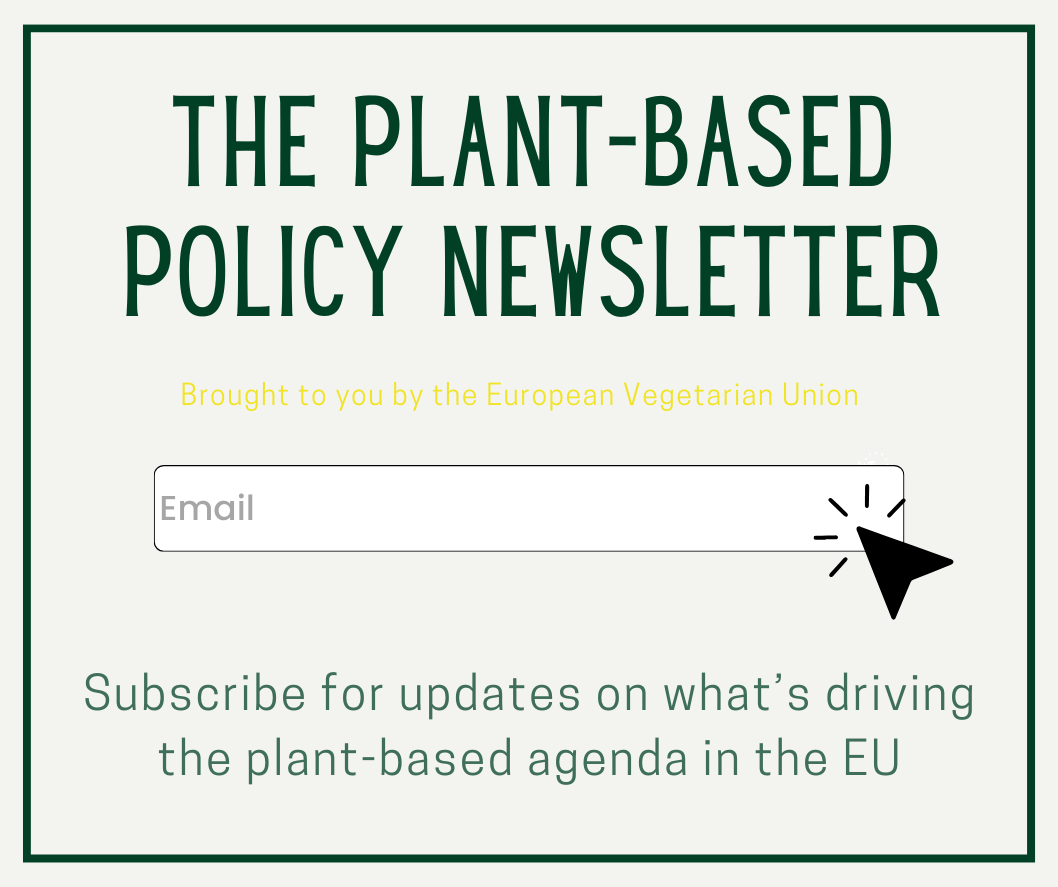The European Scientific Advisory Board on Climate Change’s (ESABCC) recent report assesses more than 80 indicators to gauge progress towards EU climate neutrality. After last year’s SAPEA report, this is the second call from EU science advisors that the EU’s food policy is not aligned with climate and environmental goals.
The Advisory Board’s findings are stark: efforts in agriculture especially, significantly lag behind the EU’s ambitious climate objectives for 2030 and 2050. The absence of a decrease in agriculture-related emissions, fuelled by continued financial support for emission-intensive practices like livestock production, underscores an urgent need for reform.
The report goes as far as stating “The Farm to Fork Strategy does not have a single delivery mechanism to achieve its objectives”, highlighting that even with low ambition, “few quantified objectives put forward by the Farm to Fork Strategy have yet to be endorsed either legally or politically”. Moreover, it underscores a lack of ambition in the proposals already approved such as the EU Code of Conduct on Responsible Food Business and Marketing Practices, the Waste Framework Directive, and the Industrial Emissions Directive.
In advocating for a shift away from livestock-based agriculture to more sustainable, plant-based alternatives, the European Vegetarian Union’s own Plant-Based Manifesto‘s vision is validated in the report’s set of recommendations. This is notably exemplified in the Advisory Board’s call for realigning the EU’s Common Agricultural Policy (CAP), including shifting support away from livestock production. Indeed, recommendation 9 of the latest report states “the EU should strengthen measures to encourage healthier, more plant-based diets, and develop a strategy for a just transition to a food system consistent with climate neutrality”.
The scientists also recommend the introduction of a system to price agriculture emissions and land use by 2031 These steps, according to the report, are critical in ensuring the EU meets its climate goals.
Connecting this to the European Green Deal’s ambitions, the transition in the agricultural sector is a critical step towards a more sustainable landscape. This shift not only aligns with the EVU’s calls for sustainable food systems but also provides a pathway for farmers to engage in more sustainable practices and explore new income streams.
In light of this report, the EVU recognises the significant challenges and opportunities ahead. The report’s emphasis on transitioning to more sustainable agricultural practices, including a shift towards plant-based diets, is a crucial step in addressing the climate emergency we face. This however leads to the question of whether the recent ‘’Strategic Dialogue’’ put forward by European Commission President Ursula von der Leyen is the right kind of tool to address the urgency of the issues at hand. . Research has shown that the Farm to Fork strategy is the most neglected part of the EU Green Deal. At the same time, the concrete policy proposals it initially proposed seemed more fit for purpose than non-binding stakeholder dialogues.
An overview of the report’s identified inconsistencies is summarised in the following image:



